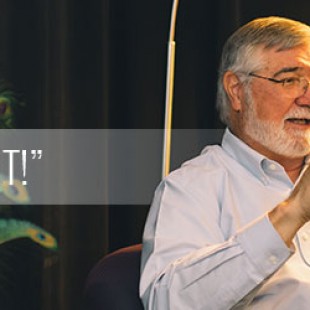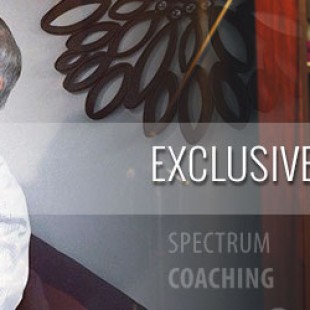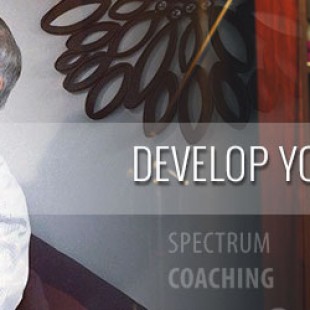TALENTS: SKILLS AND HABITUDES

Skills might be physical or mental capabilities that can be as portable as the gift of gab or as complex as listening between the lines when negotiating a truce in an ongoing collision of ideologies. Many people have one or more marketable skills. This availability of skills however is sometimes not enough to get a job. Many times the shortcoming is the lack of personal strengths and character found imbedded in personal habitudes.
Habitudes are the weaving of personal strengths and character traits found in habits with appropriate business attitudes, which together contribute to one’s behaviors and responses to business situations. An example of a habit might be, always checking your safety gear before driving to a construction site. This habit is supported by the ingrained attitudes that your personal safety is your responsibility and you have no expectation that there will be a hardhat to borrow while visiting the site. Most would agree that being responsible is an attitude, but it is also clear that, as an employee, there should be no expectation that others should take care of your safety needs. Habitudes are multifaceted and can mesh well with a multitude of skills.
Talents are finely tuned combinations of skills, and habitudes that are unconsciously present at appropriate times. In other words, talents are so well developed and imbedded in how we work and respond to others that there is no need to recall past experiences on how to use them. Others view the behaviors manifested from the talent as just the way we are. An example of a talent might be as simple as solving a problem in a way that lowers the temperatures and anxiety of others and engages others to contribute to possible solutions.
Habitudes for Success (there are others)
HABITUDE 1: SELF-AWARENESS Attitude – I can and will work with whatever life presents and, have fun.
Habit – paying close attention to sensory input from surroundings and body
We all have strengths and weaknesses in regard to our performance and capabilities. Knowing our strengths, preferences, and areas of need is a critical characteristic of a successful employee. Yet, self-awareness is more than just recognition of what you can or cannot be, do or have. This Habitude, when well developed, helps us to stay in tune to what is happening around us and serves multiple purposes. It helps us anticipate clashes and use our skills and strengths to overcome difficulties encountered.
HABITUDE 2: COURAGE Attitude – I will give it my best shot, plus.
Habit – focusing on current moment rather than to mental distractions
Success is the byproduct of taking risks, taking the plunge and saying I will not let fear hold me back. This person views being vulnerable as part of life. One must understand that it takes courage to not pay attention to the voices in your head that echo doubts, questions, or other paralyzing thoughts such as shame. This is a person I want on my team.
HABITUDE 3: ADAPTABILITY Attitude – I can learn and grow from the change
Habit – focusing on new possibilities rather than the past
Adaptability is more than just serving change; it is using change as a growth opportunity. In fact, with anticipation of change, you can be creative within the change. This kind of creative contribution to the outcome requires robust adaptivity. The world opens up for adaptable employees, because they approach each task, each challenge willing to be a beginner. They approach their learning and life with a beginner’s mindset. These employees embrace challenge with openness and flexibility. Those who struggle and resist change usually get blind-sided by it.
HABITUDE 4: PERSEVERANCE Attitude – I will find a way
Habit – doing what I say I will, with regard to intentions
How many times in your life did it take more than “I think can” to get to your goal. This is one Habitude that takes many experiences of testing ones fortitude to develop the Grit of perseverance. Employees, who developed their resolve, determination, firmness, and endurance, such as found in war veterans, are good to keep around. They can remind us of what it takes to push on.
HABITUDE 5: CURIOSITY Attitude – I wonder what would happen if?
Habit – looking beyond the obvious, just for fun.
Sponge-like employees are curious about everything. They ask questions and get themselves involved in all parts of the workplace, without worrying about the answer, but relishing the process. They learn that by posing questions, they can generate interest and aliveness in the most exciting or mundane situation. This inquisitive attitude fuels their unrelenting quest for continuous learning.
HABITUDE 6: IMAGINATION Attitude – there never was nor is there a box that limits me
Habit – pushing the edge just to see what will happen; an early adopter
Imagination is not just for kids; discovery, innovation, creativity, and learning all begin with imagination. And when our environments, including formal education, have limited our use and development of imagination, sometimes it takes other habitudes to free it.
There are other possible habitudes that might fit many workplaces .
Build your own Habitudes or performance, teamwork and creativity. Own them.
A Key to adopting habits and attitudes
Interestingly, it appears that it is more effective to adopt a habitude that fits the needs of the workplace than just a habit or an attitude alone. Making the connection seems to increase the stickiness for both habit and attitude.




